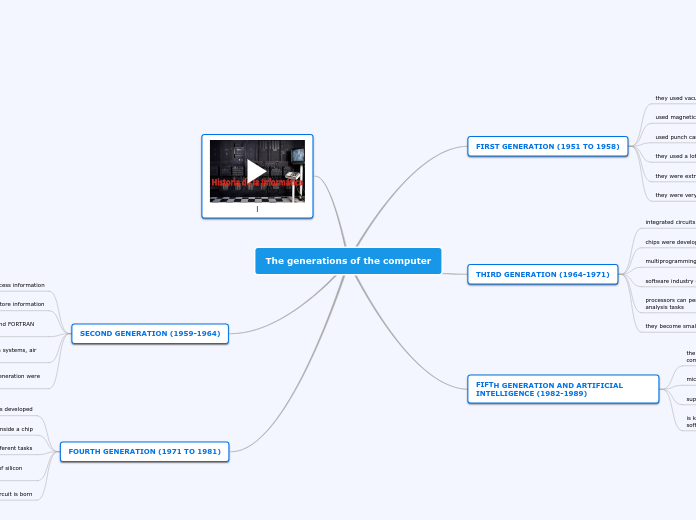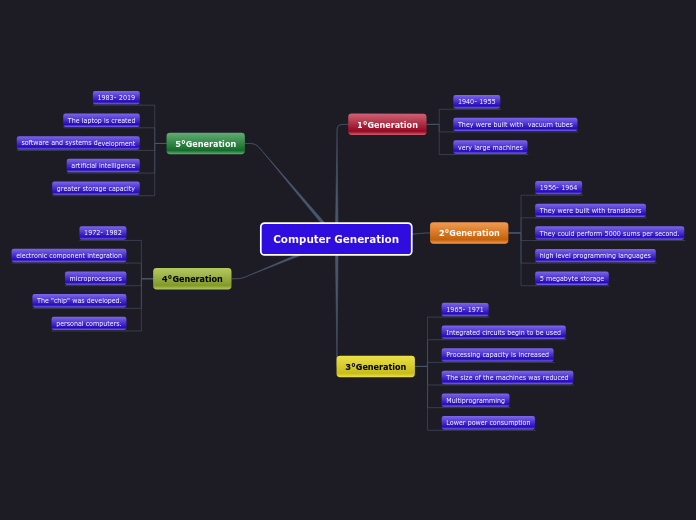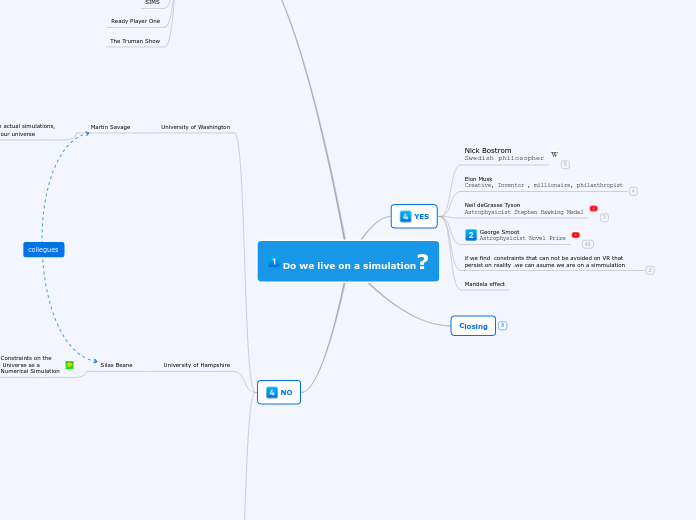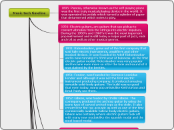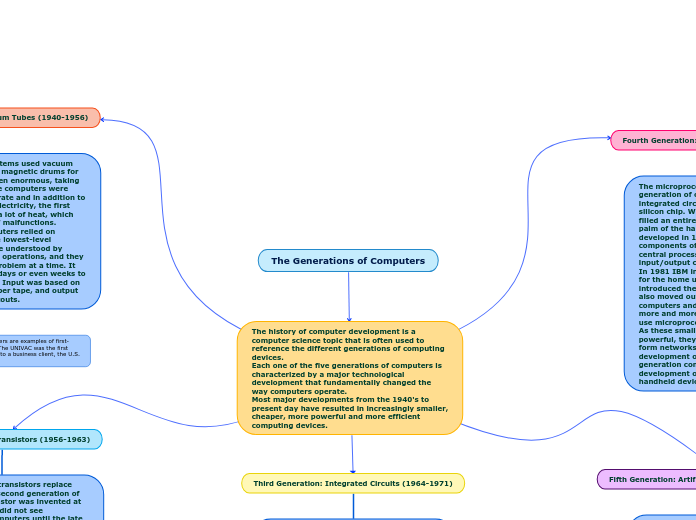af marcosn gomez 5 år siden
262
The generations of the computer
The evolution of computers is marked by distinct generations, each bringing significant technological advancements. The first generation relied on vacuum tubes, making them large and energy-intensive, with data entered via punch cards.
